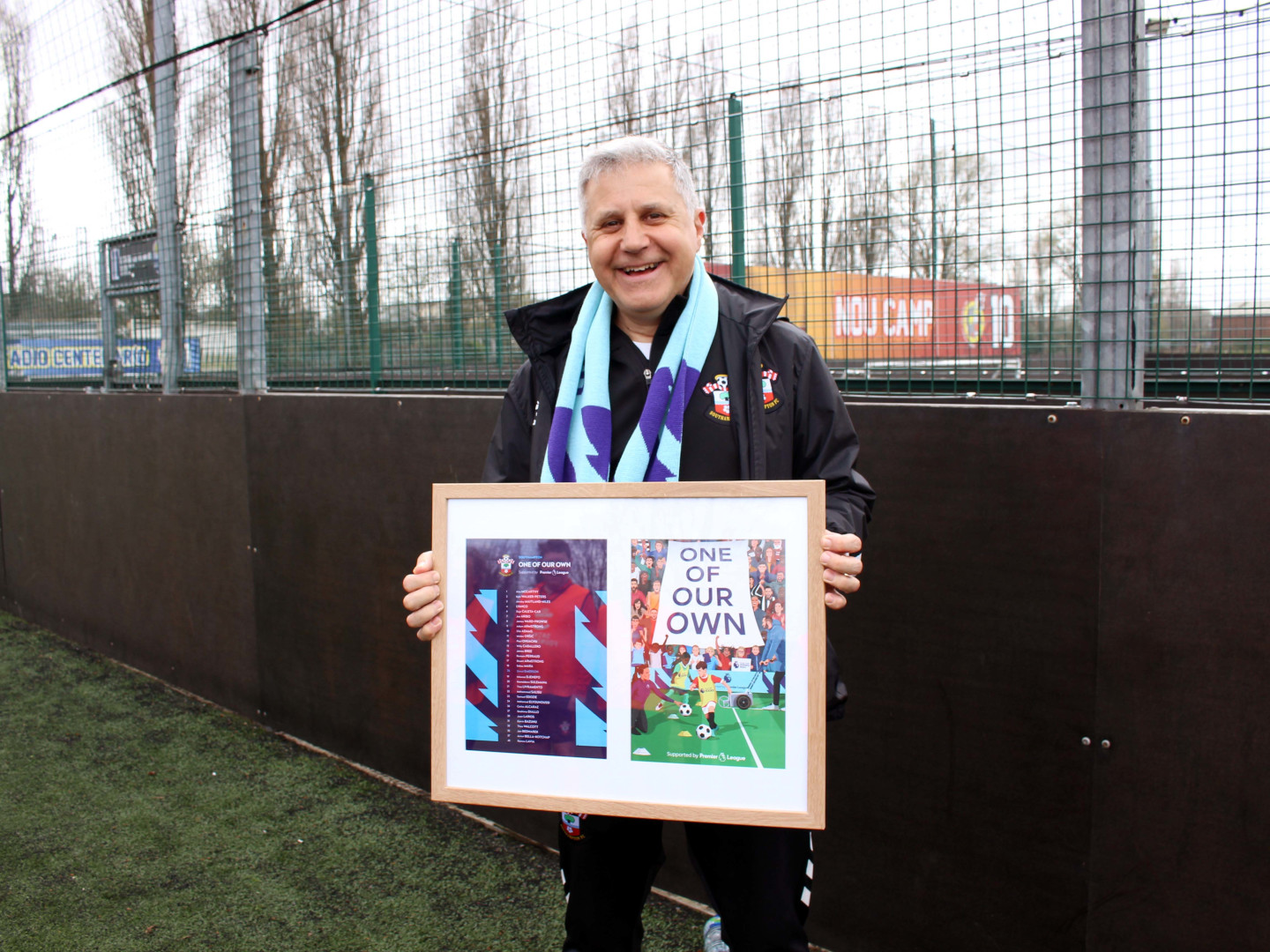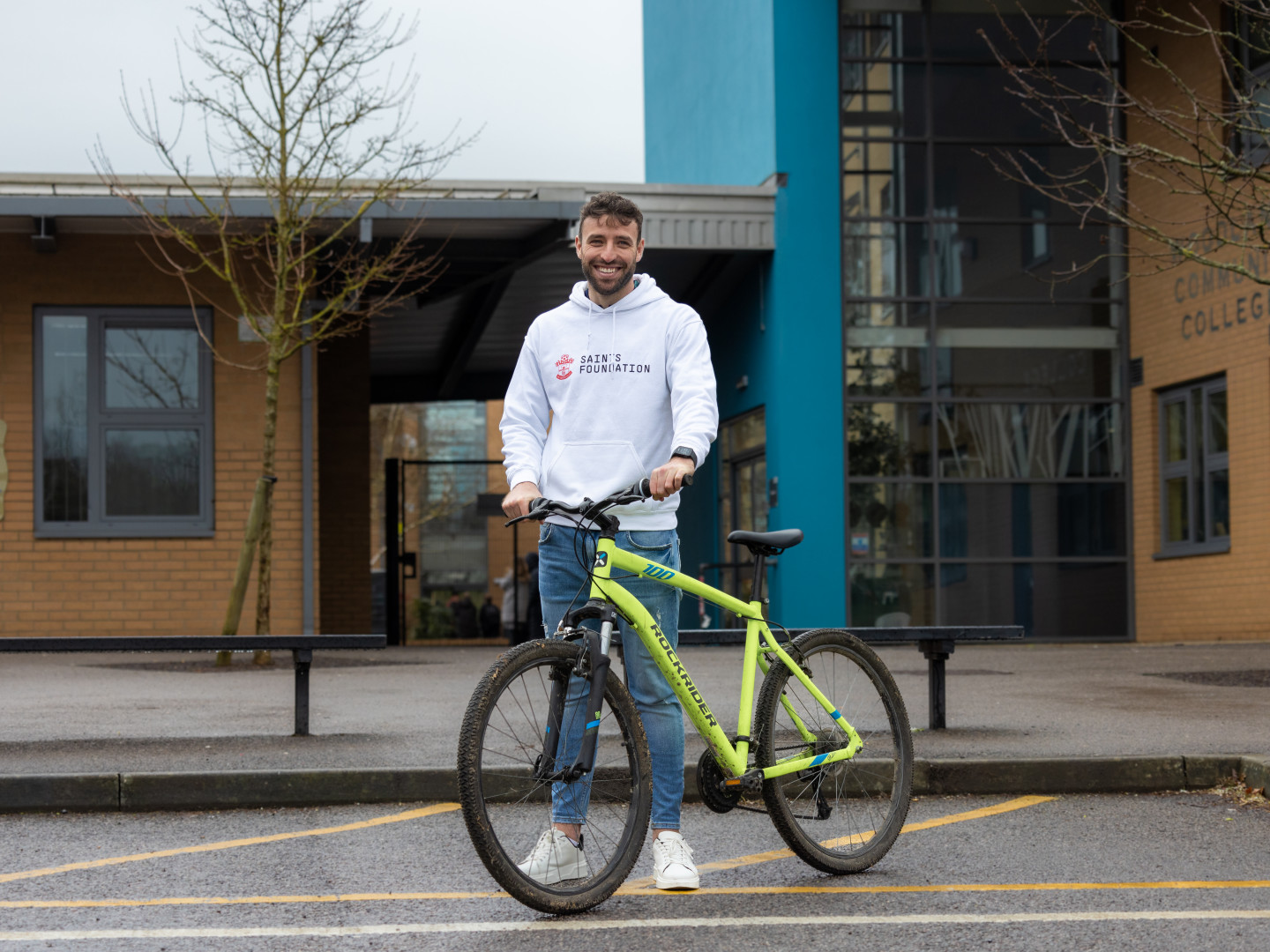Interview: Andy Harvey, Disability Coach

"It's me telling them they can do something, rather than they can't do something, which is what a lot of them hear all the time."
Andy Harvey was just 10 years old when he began assisting his dad with coaching disabled football. More than 30 years later, he continues to deliver what is now SaintsAbility, Saints Foundation’s support for people with disabilities in our community. Regardless of disability, Andy makes sure every participant gets to play and gets a touch of the ball.
How did you first get involved with SaintsAbility?
My dad was a player for Saints in the 60s, and then he went into coaching – he was a coach already with the club and he was asked to run a disabled team, because he used to be a Paralympic coach so he had the experience. No one else wanted to do it, it was quite new in those days – this was around the late 80s – so I was about 10, and he brought me along to help.
I helped him for around 7 or 8 years, then when he left I helped his replacement, and when he moved on I took over. That group eventually evolved to become SaintsAbility and was moved under Saints Foundation when the charity began in 2001. Back then, Saints were still playing at the Dell and my other job was to be ‘Super Saint’ – who you’ll know better as Sammy Saint these days!
Tell us a bit about how you coach this particular group. What do you consider in your approach, what might be different due to their disabilities?
There isn’t a lot of difference in terms of what I do as a coach – I make sure the sessions are still well controlled, because discipline stops the injuries and stops any behavioural problems you may get. I pull them up on the little things, like not having shin pads or one word out of place, and it stops anything bigger happening down the line.
But ultimately it’s all about fun. The focus is on them enjoying it and everyone having a laugh, so I’m often taking the mickey out of myself or whoever I’m coaching with.
What do you hope that your participants take away from the sessions?
I think the biggest thing is you get a lot of people coming along that have not got the social skills and aren’t used to being told what to do and doing it, so behaviour is really important. The amount of times a carer has said to me, they never behave like that away from the session… that’s probably the proudest thing they could tell me because it shows that it works, and that person can behave if given the right support.
It’s not just discipline, it is support – that’s how I see it – it’s not me telling them off, it’s me telling them they can do something, rather than they can’t do something, which is what a lot of them hear all the time.
What do you personally enjoy most about the sessions?
I do it for interaction with these people of all different abilities. What I get out of it is the enjoyment I see in them all, and the progression as well, particularly in behaviour. They are all told they can’t do something, but at SaintsAbility, I treat them exactly how I’d treat an abled body person.
When I was very young, when I first started helping my dad with the coaching, there was one participant who was in a wheelchair, mostly immobile. He could only move one finger. We adapted the roles so he could get involved – if the ball touches the front of his chair, he gets a penalty – all very clever and I learnt it from my dad.
During a session, my dad pulled me over and said: “Everyone’s treating him like he’s going to break. What I want you to do is get the ball to him, and if it makes contact, he gets a penalty.” We played with light plastic balls, so if it hits you, it doesn’t hurt.
So we're playing and I direct my kick at him, and he ends up getting a penalty. Then after, he wheeled over to me and said: “Thank you Andy. That’s the first time anyone’s treated me the way I want to be treated.” And from then on, that’s informed the way I lead my sessions.
How do you deal with the more challenging situations that arise at SaintsAbility?
There’s been some very difficult situations, because you’re often dealing with people who have life-limiting disabilities, or they have a condition that means that something could happen very quickly. We’ve sadly lost people over the years, and it’s such a shock to the group.
One of my participants, he was with us for about 15 years but eventually left the group as he became less able to take part. About 10 years later, he came to a session and he gave me a Liverpool mug and bowl. I had no idea he was coming, he just turned up and said to me, “Andy, I just wanted to give you this and say thank you” – and off he went.
A week or so later, I found out he had died. So he knew what was going on, that he didn’t have long left, and he came back just to say that. That’s why I do it. You really can impact people in a big way. That’s why I want my kids involved too, and when they’re old enough they will be. I want them to come along into this environment, not because of the sad situations, but because it’s changed me.
I’d like to thank the club and the Foundation for supporting the project and allowing me to continue working with my participants for so long.
This season, Saints Foundation is celebrating 20 years of transforming lives in Southampton. Follow the link below to hear more inspirational stories like Andy's.

